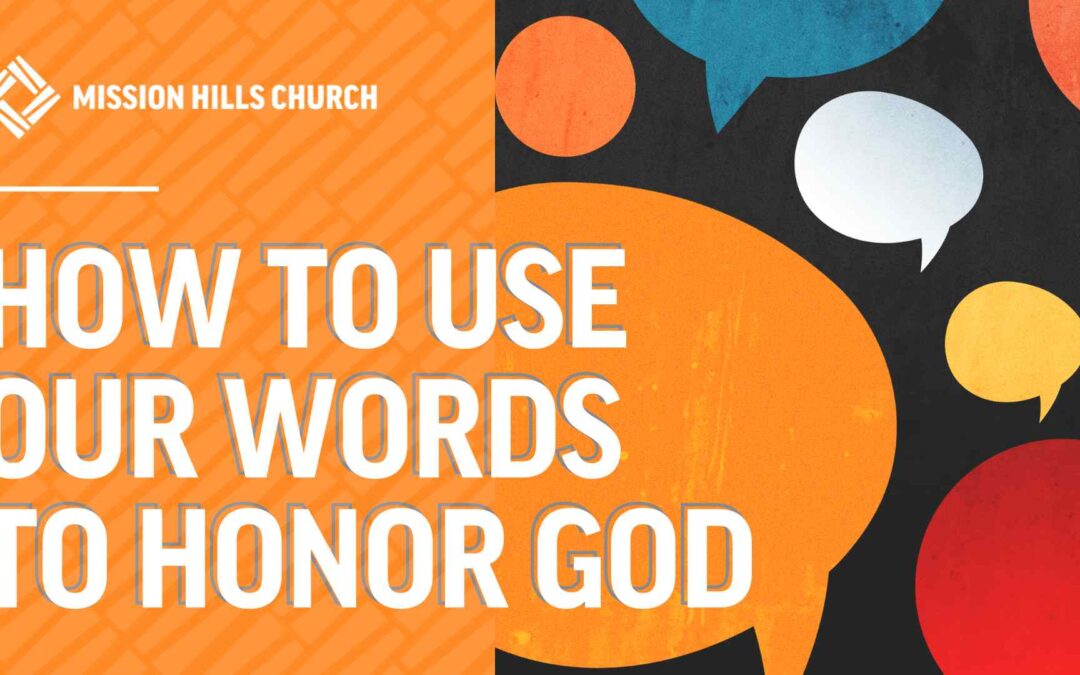Some of the things we learned as kids turned out to be really useful when we grew up. “Treat others as you want to be treated” and “honesty is the best policy” are pretty good principles whether you’re eight or eighty. But let’s be honest: not everything we learned as kids stood the test of time…and some of them turned out to be lies from the pit of hell itself.
For example: “Sticks and stones may break my bones, but words will never hurt me.”
Remember that one? Did you believe it then? How about now?
Apparently, this little bit of so-called wisdom goes back at least to 1872, when it appeared in an edition of The Christian Recorder. In its original context, it was actually a pretty useful principle. See, originally, it wasn’t meant to deny that words have power but to stiffen our spines against that power when summoning the courage to do what is right, “despite the jeers and sneers of our companions” which is how the original aphorism ended.
The way most of us heard it, though, the clear implication was that words don’t hurt. And we all know that’s a lie.
“You’re stupid.” “You’re ugly.” “You’re fat.” “You’re fired.” “I don’t love you anymore.” “I wouldn’t go out with you if you were the last man on earth.” “I want to live with dad.” “That’s the dumbest idea I’ve ever heard.”
You’ve probably got a few of your own, don’t you?
Why would we ever tell kids that words will never hurt them when we’re all walking around with the wounds they’ve inflicted?
Negative Words Cause Long-Lasting Harm
It’s been said that “words create worlds,” and that’s true, but let’s be honest. They also tear them down. Words hurt. Maybe the damage can’t be seen on our bodies, but it can be felt in our souls. And the damage they cause heals – if at all – far more slowly than broken bones.
Words don’t even have to be spoken in anger to do deep damage.
I still remember being back from college for the summer and going to my barber. After a little bit of catching up, she got to work on what I honestly thought of as my pretty impressive head of hair. Somewhere mid-cut, she just casually threw out words that I still remember to this day, more than three decades later: “Wow, you’re really starting to lose your hair, aren’t you?”
Ouch.
I’ve never considered myself particularly vain, but that really stung! And I know, she wasn’t being mean or intending to cause me any pain at all but…well, here I am bringing it up again thirty years later in a blog about the power of words!
Words hurt, and sometimes they keep on hurting for a very long time.
How Our Words Affect Our Minds
I broke a finger recently and while the orthopedic surgeon was looking at the x-rays, he pointed to a jagged white line on another finger and said, “Looks like this isn’t the first finger you’ve ever broken. How’d you break that one?” No idea. Literally, no idea. I assume I felt it at the time and just thought I had jammed it or sprained it or something, but I don’t even remember that.
So, I’ve literally broken bones that I have no memory of, but things people have said to me seem to stay fresh no matter how much time passes.
Chances are you have a physical scar or two you don’t remember how you got, but you’ve also got some word-wounds whose origin story is crystal clear even decades later.
Recent studies in epigenetics – the science of how genes are turned on or off – have discovered that words can, quite literally, change our brains by influencing the expression of genes that regulate stress. Positive words can strengthen areas of the brain that promote cognitive function and stimulate motivation. But even a single negative word can increase activity in the amygdala, releasing stress hormones.
Words don’t just hurt, they harm. And the harm they produce can be profound and long-lasting. And, clever rhymes aside, we have always known it.
Timeless Truth About the Power of Our Words
As I was researching the origin of “sticks and stones may break my bones, but words will never hurt me,” I discovered that another very well-known saying about words made its first appearance just a few years earlier:
“The pen is mightier than the sword.” Edward Bulwer-Lytton
That one isn’t told to kids nearly as often, but it should be, because it’s an important reminder about the power we wield with our words.
But our understanding that words are powerful – far more powerful than we seem to remember as we sling them about like harmless playthings – goes back much further than the 19th century.
-
- At least as far back as ancient Greece, philosopher-poets drew our attention to the same reality: “I have often regretted my speech, but never my silence.” Simonedes, 4th Century B.C.
- Even earlier than that, perhaps as early as the 10th century B.C., the Israelite King Solomon wrote: “Sin is not ended by multiplying words, but the prudent hold their tongues.” Proverbs 10:19
- Have you ever heard the old saying, “better to stay silent and be thought a fool than to open your mouth and remove all doubt”? Turns out old King Solomon might deserve credit for that one: “Even fools are thought wise if they keep silent, and discerning if they hold their tongues.” Proverbs 17:28
- Solomon may have also penned the words, “Many words mark the speech of a fool.” Ecclesiastes 5:3
Centuries after Solomon, the Greeks encoded their reverence for the power of words into their word for words. The Greek term for “word” is logos, which meant far more than just a set of letters, the sound they make, or the thing or idea the sound represents. Logos was universal divine reason, the mind which underlay, gave rise to, and held together, all of nature.
For the Greeks, words didn’t merely represent the world, they created it.
Building on this understanding, the Gospel of John describes Jesus – the divine Son who has come into the world – as the Word (logos):
“In the beginning was the Word, and the Word was with God, and the Word was God.” John 1:1
This was John’s way of building on the Greek conception of logos to say that Jesus is not merely a word from God, a messenger with a message for the world, he is the Word of God, the personal, creative force through whom the world itself was created. Or, as John went on to say in the next verse:
“Through him all things were made; without him nothing was made that has been made.” John 1:3
The ancients understood very well that words do not simply convey, they create. Words create worlds; worlds of beauty, peace and healing, but also – as we all know far too well – worlds of horror, pain and suffering.
James, the half-brother of Jesus understood this clearly:
“When we put bits into the mouths of horses to make them obey us, we can turn the whole animal. Or take ships as an example. Although they are so large and are driven by strong winds, they are steered by a very small rudder wherever the pilot wants to go. Likewise, the tongue is a small part of the body, but it makes great boasts. Consider what a great forest is set on fire by a small spark. The tongue also is a fire, a world of evil among the parts of the body. It corrupts the whole body, sets the whole course of one’s life on fire, and is itself set on fire by hell.” James 3:3-6
Words are powerful. We’ve always known it. And yet, we often forget it, which is an amnesia we cannot afford.
This blog is an excerpt from Pastor Craig Smith’s latest book, Sticks & Stones: Words That Build, Not Break. Want to purchase a copy? Join us at Mission Hills Church during our 4-week message series starting September 7 + 8 to buy yours (all proceeds go toward our Short Term Trip scholarships), or you can order online!
RELATED CONTENT
AUTHOR CREDITS
Craig Smith
Lead Pastor
GRAPHIC CREDITS
Maddie Brouwer
Communications Coordinator





